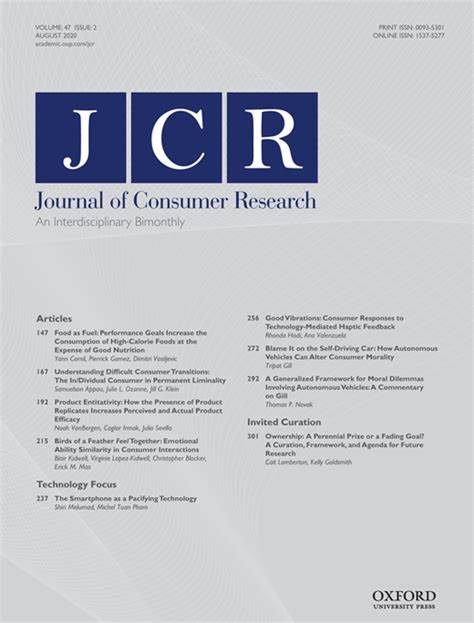“想要”与“需要”:语言框架如何影响对众筹呼吁的回应
IF 6.4
1区 管理学
Q1 BUSINESS
引用次数: 2
摘要
本研究以众筹为背景,考察了框架上的简单差异——在请求中使用“想要”和“需要”——何时以及为何会影响出资人对募捐呼吁的遵从性。在语义框架和心理语言学文献的基础上,我们提出使用“想要”(相对于“需要”)表明筹款人是一个相对较少(相对较多)依赖的人。这种认知差异会对两种主要的众筹诉求形式产生相反的影响。对于以奖励为基础的呼吁,在这种呼吁中,筹款人承诺对捐款进行回报,资助者有一个盈利(即寻求激励)的目标,并且更愿意向不那么依赖的筹款人捐款。相比之下,对于募捐者没有承诺任何激励的捐赠型呼吁,资助者主要是出于非营利(即帮助)目标的动机,并且更愿意向被视为更依赖帮助的募捐者捐款。因此,我们预测“想要”(“需要”)框架在基于奖励(基于捐赠)的众筹中更有效。两项大规模观察研究和四项实验的结果支持我们的预测,并阐明了潜在的机制。总的来说,这些发现为语义框架和众筹的文献做出了贡献,也为筹款人、营销人员和政策制定者提供了实际意义。本文章由计算机程序翻译,如有差异,请以英文原文为准。
“Want” versus “Need”: How Linguistic Framing Influences Responses to Crowdfunding Appeals
This research uses a crowdfunding context to examine when and why a simple difference in frame—using “want” versus “need” in the request—affects funders’ compliance with an appeal for contributions. Building on the semantic framing and psycholinguistics literature, we propose that using “want” (versus “need”) signals that the fundraiser is a relatively less (vs. more) dependent person. This perception difference then exerts opposing effects on the two major forms of crowdfunding appeals. For reward-based appeals, in which fundraisers promise a return on contribution, funders have a for-profit (i.e., incentive-seeking) goal and are more willing to contribute to a less dependent fundraiser. In contrast, for donation-based appeals, in which no incentives are promised by the fundraisers, funders are primarily motivated by a non-profit (i.e., helping) goal, and are more willing to contribute to a fundraiser who is seen as more dependent on help. Therefore, we predict that a “want” (“need”) frame is more effective in reward-based (donation-based) crowdfunding. Results from two large-scale observational studies and four experiments support our predictions and also illuminate the underlying mechanisms. Collectively, the findings contribute to the literature on semantic framing and crowdfunding, and also offer practical implications for fundraisers, marketers, and policymakers.
求助全文
通过发布文献求助,成功后即可免费获取论文全文。
去求助
来源期刊

Journal of Consumer Research
BUSINESS-
CiteScore
12.00
自引率
9.70%
发文量
53
期刊介绍:
Journal of Consumer Research, established in 1974, is a reputable journal that publishes high-quality empirical, theoretical, and methodological papers on a wide range of consumer research topics. The primary objective of JCR is to contribute to the advancement of understanding consumer behavior and the practice of consumer research.
To be considered for publication in JCR, a paper must make a significant contribution to the existing body of knowledge in consumer research. It should aim to build upon, deepen, or challenge previous studies in the field of consumption, while providing both conceptual and empirical evidence to support its findings.
JCR prioritizes multidisciplinary perspectives, encouraging contributions from various disciplines, methodological approaches, theoretical frameworks, and substantive problem areas. The journal aims to cater to a diverse readership base by welcoming articles derived from different orientations and paradigms.
Overall, JCR is a valuable platform for scholars and researchers to share their work and contribute to the advancement of consumer research.
 求助内容:
求助内容: 应助结果提醒方式:
应助结果提醒方式:


